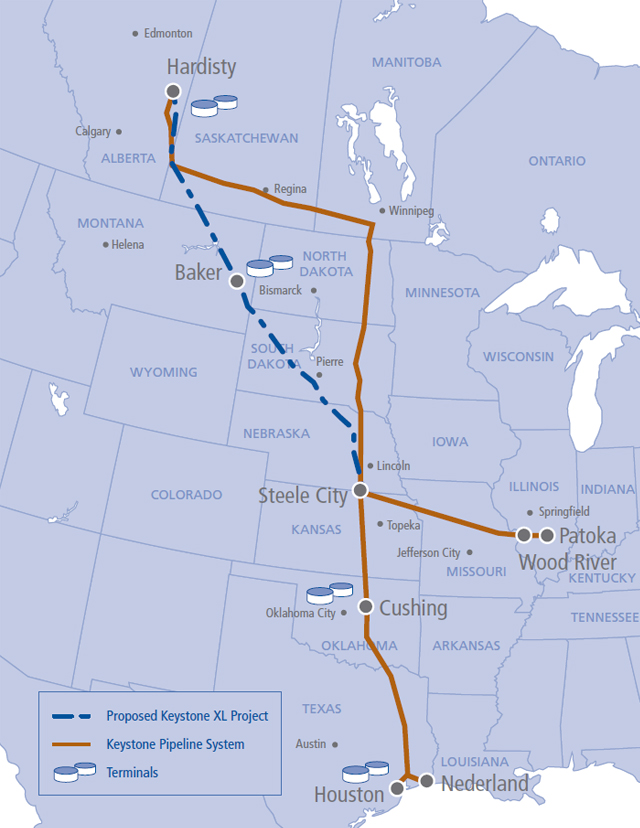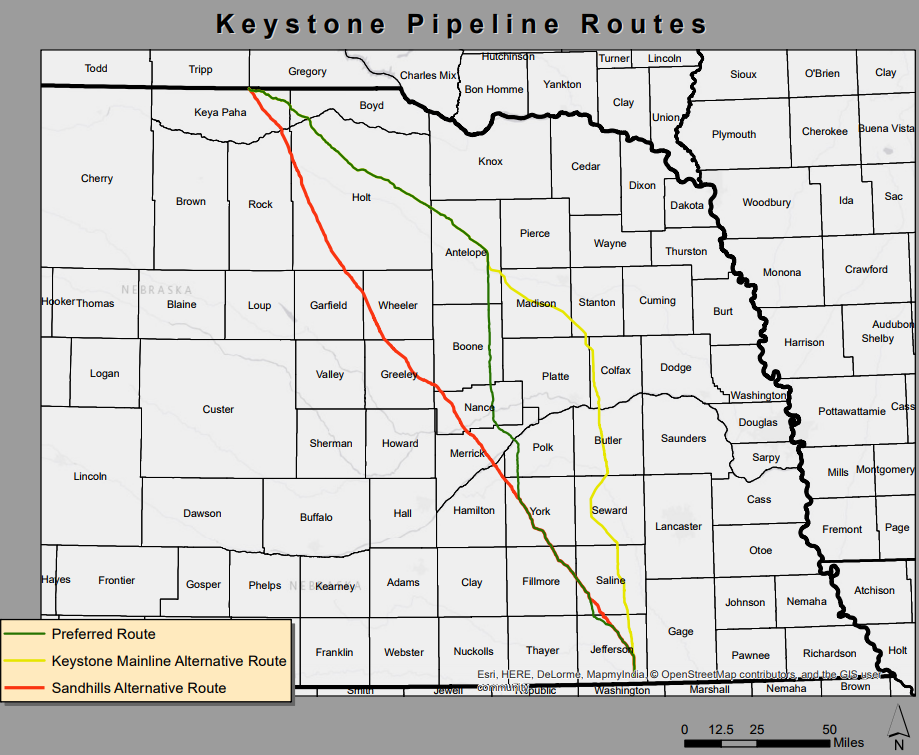Alternate route would parallel original Keystone, adds only 5 miles to route
Nebraska approved an alternative route for Keystone XL today, in a move that may complicate the project going forward.
First conceived in 2008, Keystone XL has been embroiled in controversy that has pushed the pipeline into the public eye. The federal government approved the federal permit for the project in March, reversing the rejection the project received in 2015. Canada, Montana and South Dakota each approved the line, leaving Nebraskan approval as the only major hurdle left for the project. With a capacity of 830,000 BOPD, the line would transport a large amount of Canadian heavy crude to refiners in the Gulf.
Nebraska failed to approve the proposed line, however, instead approving an alternative proposed by TransCanada that would parallel the original Keystone pipeline. This route will cut farther east, eventually meeting up with Keystone, then proceed south. The line will only be about five miles longer than the preferred route, and according to the Nebraska Public Service Commission will impact fewer endangered species.


This throws the project into question, as most of TransCanada’s efforts and extensive analysis have evaluated the standard route. The company recently closed an open season on the project, and stated it has received sufficient support for oil producers.
Decision reduces political risk for higher volumes of Western Canada heavy crude to reach Gulf
The company will need to receive approval from new landowners, and will have a longer overall length. However, analysts reported the results as a partial victory for TransCanada. According to analysts at Wood Mackenzie, “Nebraska’s decision today greatly diminishes the political risk for the project, likely clearing the way for increased volumes of Western Canadian heavy crude to reach the Gulf Coast.”
TransCanada president and CEO Russ Girling commented on the decision, saying “As a result of today’s decision, we will conduct a careful review of the Public Service Commission’s ruling while assessing how the decision would impact the cost and schedule of the project.”
The approval of an alternate route may also invite further court challenges. Most environmental studies on Keystone XL did not evaluate alternate routes at all, so environmental groups will likely use the less intensive vetting as grounds for challenging the project going forward.


